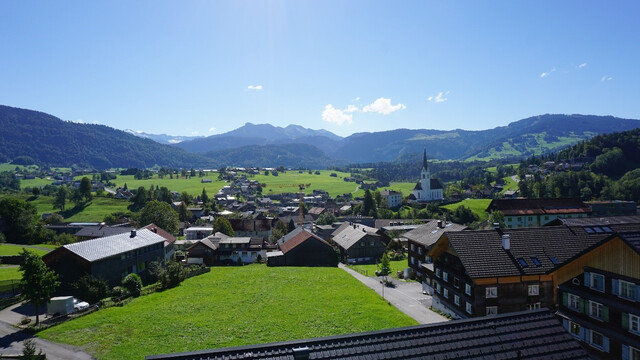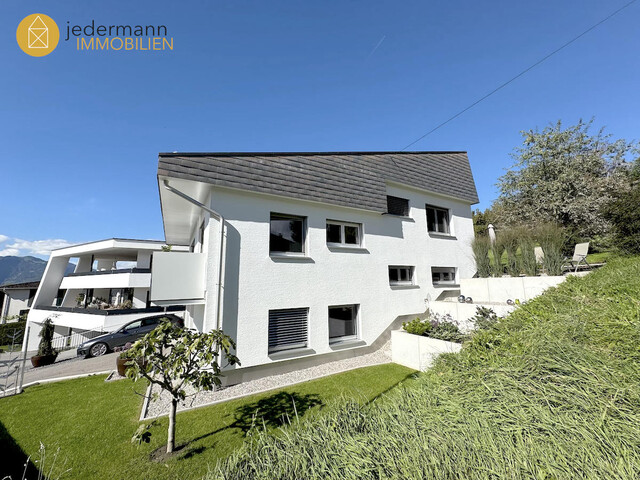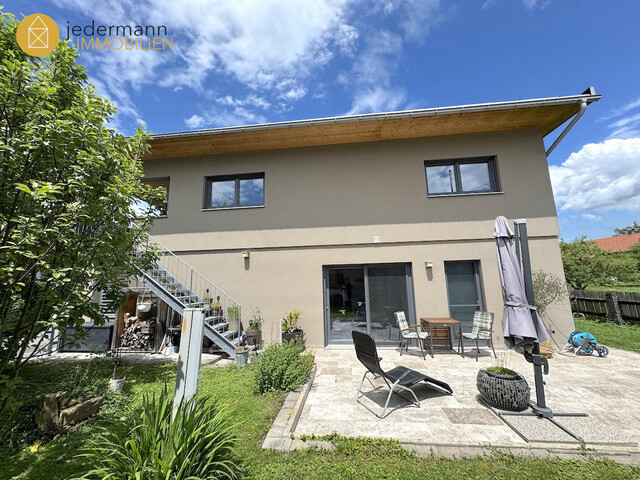Draft for New ElWG: AK Sees Much Light, but Also Shadows

The consultation draft of the Electricity Industry Act (ElWG) is positively received by the economy: The draft offers the "opportunity to position the domestic electricity market to be future-proof, cost-efficient, and competition-oriented," notes the Federation of Austrian Industries. The Chamber of Commerce (WKÖ), the Economic Association, and oecolution also point out the advantages of the draft for consumers and companies. "Yes, but..." is the response from the Chamber of Labor.
The planned producer participation in network costs and a social tariff are "important steps" for more affordability, but the AK sees a significant need for improvement in the right of electricity suppliers to change prices, as energy law expert Priska Lueger from the AK Vienna told the APA. The consultation runs until August 15.
"We are extremely glad that the new Electricity Industry Act is finally being put on track," said Lueger. "Given how the energy system is now structured, legal adjustments are simply needed, and many experiences from practice are being taken into account. Not least, we also have an infringement procedure at the EU level - so it is really time from a union law perspective that we implement the whole thing."
However, she sees a need for refinement, especially with the planned social tariff and the right to change prices. The background is still high energy prices and an above-average inflation rate compared to international standards. At the same time, Austria's electricity industry has recently achieved high surpluses - which underscores the political mandate to focus more on affordability alongside sustainability and security of supply, argues the AK.
AK demands: Social tariff also for "Working Poor"
In protecting vulnerable households, the AK welcomes the proposed low tariff as a milestone against energy poverty but criticizes that the circle of eligible persons is too narrowly defined. An expansion is demanded to include all persons considered vulnerable under the Energy Poverty Definition Act - including, for example, the unemployed and "working poor." Based on the figures from 2024, around 183,000 people would be entitled to the subsidized tariff under the current draft, says Lueger. However, it can be assumed that more people would take advantage of the subsidized electricity tariff than previously benefited from the ORF fee exemption.
Why this social policy measure should be financed by energy suppliers is explained by Lueger as follows: "Energy companies have a public service obligation. Energy is part of the basic provision for households. At the same time, we know that they have made very large profits during the energy crisis, etc. And therefore, from our point of view, it is quite justified that these profits are then partially passed back to the customers."
How the planned social tariff for electricity is set up is "incomprehensible" to Lueger; in some cases, money is only redistributed among energy companies. What actually remains for the favored households is only a fraction of the total pot of 50 million euros, into which the electricity suppliers pay. Currently, it is also "legally quite unclear what happens when these 50 million are exhausted."
AK pushes for fairer distribution of network costs
The AK is also pushing for a fairer distribution of network costs: Producers are equally dependent on a powerful network, but currently only bear around 6 percent of the system costs. In view of rising network expenses, greater involvement of producers is overdue, and households with smaller PV systems should be exempt from feed-in charges.
The relief effect would be significant, the AK calculates: If producers were to bear half of the network costs, consumers would save over 1.5 billion euros per year - an average of around 170 euros per household. Even an increase to a 15 percent producer share would still bring more than 300 million euros in relief. The AK considers exemptions for small PV systems to be sensible; the design should be determined by E-Control.
Criticism of the Right to Change Prices
The AK sharply criticizes the new legal right to change prices: Based on the experiences of recent years, in which courts repeatedly sided with consumers, the draft would make it more difficult for customers to challenge implausible increases. Clear guidelines for transparency and traceability, as well as deterrent legal consequences for excessive price hikes, are demanded.
Particularly rejected is a shortening of the statute of limitations to five years and the "automatic" provision in the draft, whereby an unreasonable increase would automatically be replaced by a reasonable one. From the AK's perspective, a price increase deemed unreasonable should instead be invalid, says Lueger. Additionally, there is a need for sanction options by the regulatory authority and expanded reporting and publication obligations to strengthen price transparency.
"What we need now are results-oriented discussions, pragmatic solutions, and a red-white-red alliance," says Barbara Schmidt, Secretary General of Oesterreichs Energie.
The AK positively notes that affordable renewable energy is anchored as a goal of the law and that companies with majority public ownership should establish corresponding public service obligations as primary corporate objectives.
Austria's electricity industry is largely satisfied with the draft. "Positive elements such as flexible network charges, peak capping for photovoltaic and wind power plants, or digital billing provide important impulses for efficiency, more system compatibility, and better customer service," states Oesterreichs Energie. However, the electricity industry's interest group still sees a need for action regarding network charges for producers, legal certainty in price adjustments, or the relief of storage facilities.
No Place for Social Policy
For the Federation of Austrian Industries, a reliable, affordable, and efficient electricity system is essential to secure international competitiveness. However, it views network charge exemptions, exceptions for energy communities, and subsidized prices - keyword social tariff - critically. "The ElWG is the wrong place to conduct social policy," says IV Secretary General Christoph Neumayer.
With the new grid fees for feed-in providers "the costs are distributed over more shoulders," welcomes WKÖ Secretary General Jochen Danninger the plan to generally involve electricity suppliers in the grid costs. At the same time, this sets an incentive to consume the self-produced electricity oneself or together with neighbors, instead of feeding it into the power grid.
"Fair and Reliable Framework Conditions"
For the Economic Association, the draft law creates "fair and reliable framework conditions for domestic businesses and households," as Economic Association Secretary General and ÖVP Economic Spokesperson Kurt Egger emphasizes.
The position of consumers is strengthened by more understandable and easily comparable electricity bills, argues the association oecolution, financed by the Federation of Austrian Industries (IV) and the Austrian Economic Chamber (WKÖ), as a reason for the draft. Digital electricity meters - so-called smart meters - enable new flexible tariff models, adds oecolution Managing Director Christian Tesch according to a press release. But the use of e-cars as flexible electricity storage also contributes to a more effective use of renewable energies. The participation of electricity feed-in providers in the grid costs is only fair. That production peaks are capped is also positively evaluated by oecolution, as this avoids high investments in grid expansion.
Energy Experts See Legal Hurdles
The draft of the Electricity Industry Act (ElWG) could violate Union law. This emerges from a legal opinion by the European Renewable Energies Federation from Brussels, reports "Die Presse" online. It concerns the capping of peaks in wind power plants - that is, the limitation of electricity feed-in during overproduction. According to the report, an implementation and legal uncertainty problem for feed-in providers is emerging, according to the short report.
The capping of peaks may be permissible in itself, but it must not be used to permanently avoid any or further grid-enhancing measures, the report states. The Electricity Internal Market Directive also provides for flexible grid connection contracts. However, the ElWG in the current draft grants the grid operator alone the right to permanently dynamically limit the performance, another point of criticism. The experts also criticize that the explanations "are intended to create the possibility of permanent limitations." It is also criticized that the capping of peaks is to occur without compensation.
The paper involved, among others, the German lawyer Dörte Fouquet, who also sits on the supervisory board of the Austrian regulator E-Control. If the law is implemented in its current version, Austria risks state liability claims as well as proceedings before the European Court of Justice (ECJ), according to the assessment of Maria Anwar, a lawyer at IG Windkraft.
(APA/Red)
This article has been automatically translated, read the original article here.
Du hast einen Hinweis für uns? Oder einen Insider-Tipp, was bei dir in der Gegend gerade passiert? Dann melde dich bei uns, damit wir darüber berichten können.
Wir gehen allen Hinweisen nach, die wir erhalten. Und damit wir schon einen Vorgeschmack und einen guten Überblick bekommen, freuen wir uns über Fotos, Videos oder Texte. Einfach das Formular unten ausfüllen und schon landet dein Tipp bei uns in der Redaktion.
Alternativ kannst du uns direkt über WhatsApp kontaktieren: Zum WhatsApp Chat
Herzlichen Dank für deine Zusendung.








